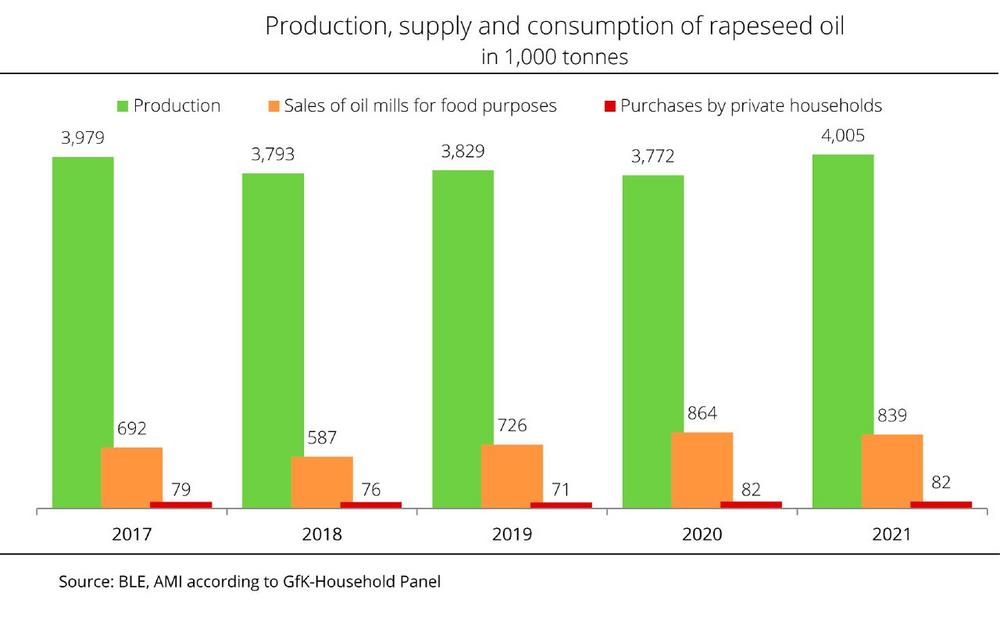
Private households account for 2 per cent of total German rapeseed oil consumption
With war raging in Ukraine and the particular importance the country has to the global supply of sunflower oil, panic purchases are emptying retail shop shelves. The Union zur Förderung von Oel- und Proteinpflanzen e. V. (UFOP) has stressed that there is no reason to panic because people can switch to edible rapeseed oil, which is of at least the same quality and can be used in hot or cold recipes. The new supply of rapeseed oil was already sown in the past autumn and is now growing on approximately 1 million hectares of land in Germany alone as temperatures are rising. In the EU-27, rapeseed is grown on approximately 6 million hectares. According to the UFOP, a total harvest of approximately 18 million tonnes of rapeseed would yield around 7.2 million tonnes of rapeseed oil.
At the same time, around 10.8 million tonnes of rapeseed meal for feeding would be obtained in rapeseed processing, replacing the corresponding volume of soy imports for animal feeding. Rapeseed meal has replaced soybean meal in dairy cow feeds, the UFOP has underlined, also with a view to the critical debate currently re-emerging on the use of cultivated biomass in biofuels.
The association has emphasised that supply of edible rapeseed oil is fundamentally secure and well beyond demand, adding that panic purchases emptying shop shelves and causing food retailers to introduce rationing are completely unnecessary.
According to the German Federal Office for Agriculture and Food (BLE), German oil mills produced just over 4.7 million tonnes of vegetable oil in 2021, including just over 4 million tonnes of rapeseed oil. This was around 234,000 tonnes more than the previous year. About 839,000 tonnes of the rapeseed oil produced went into the production of food (edible oil, mayonnaise etc.). Rapeseed oil was also used to produce animal feedstuff, as well as in the oleochemical industry and energy sector.
The Union for the Promotion of Oil and Protein Plants e. V. (UFOP) represents the political interests of companies, associations and institutions involved in the production, processing and marketing of domestic oil and protein plants in national and international bodies. UFOP supports research to optimise agricultural production and for the development of new recycling opportunities in the food, non-food and feed sectors. UFOP public relations aim to promote the marketing of domestic oil and protein plant end products.
UFOP – Union zur Förderung von Oel- und Proteinpflanzen e.V.
Claire-Waldoff-Str. 7
10117 Berlin
Telefon: +49 (30) 2359799-40
Telefax: +49 (30) 2359799-99
http://www.ufop.de
Sekretariat
Telefon: +49 (30) 31904-486
Fax: +49 (30) 31904-485
E-Mail: s.reder@ufop.de
Telefon: +49 (30) 31904-225
E-Mail: s.arens@ufop.de
![]()




